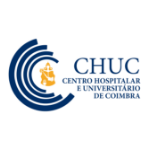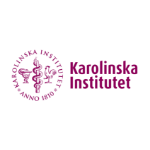Discreet, personalised epileptic seizure detection device
SeizeIT2 is a clinically accurate seizure detection system for people with epilepsy. This discreet wearable device monitors several biosignals to allow a more precise quantitative analysis of seizure activity, so that people with epilepsy can receive treatment optimised for their specific condition.
Origins
More than 50 million people worldwide have epilepsy, making it one of the most common neurological diseases globally. Inaccurate seizure reporting causes challenges in diagnosing and treating people with epilepsy. This initiative seeks to detect seizures more comprehensively, allowing experts to further analyse the complexities of seizure events and to understand the impact on patients.
Team
SeizeIT2 unites public and private stakeholders to address an unmet patient need. This is a continuation of an ICON project, led by UCB, with external partners and members from Universidad de Navarra, Karolinska Institutet, KU Leuven, RWTH Aachen, Universitätsklinikum Aachen, Centro Hospitalar e Universitário de Coimbra, Oxford University Hospitals NHS Foundation Trust and Stockholms Läns Landsting.
The project
SeizeIT is a proof-of-concept device enabling precise, objective logging of seizures for people with epilepsy. The first prototype of this wearable allows comfortable and unobtrusive seizure monitoring outside of a hospital setting.
SeizeIT2 comprises an improvement over seizure diaries, in which patients keep a record of their own seizures. SeizeIT2 provides 70-90% accuracy, compared to the accuracy level of less than 50% that is typical for a seizure diary, and it offers an improved patient experience. Benefits of the device include its discreet, unobtrusive design and its multimodal system, which measures several clinical biosignals, such as brain activity, circulation, respiration and other parameters. Another advantage of the device is its ability to monitor seizures around the clock.
The device has been tested by more than 70 patients with temporal lobe epilepsy,, a condition affecting around 20 million people globally, and eight patients with absence epilepsy. Preparation is underway for next steps, including multi-centre clinical validation of at least 500 patients, medical certification and initiation of scalable production. The prototype’s intelligent design allows increased functionality over time, offering the opportunity to go from the initial “EEG holter monitor” to a real-time monitoring and alerting system.
Impact
The greater accuracy of seizure monitoring permitted by SeizeIT2 can benefit:
- Patients, by maximising the impact of medicines through a more accurate evaluation of their treatment response.
- Seizure drug developers and clinical researchers.
- Pharma researchers, undertaking patient stratification or seeking to shorten the duration of clinical studies.
- SeizeIT2 also holds longer term promise as a seizure alarm (SUDEP prevention) and seizure prediction tool for patients.
Why this is an EIT Health project
By allowing for accurate, 24-hour monitoring with a wearable device, the SeizeIT2 project meets the objectives of the EIT Health Focus Area of “Bringing Care Home”. By improving the precision of seizure monitoring, the device also promises improved, personalised care, in keeping with the Focus Area of “Care Pathways”.
External partners
- Kings College London
- BYTEFLIES NV
- Epione bvba
- Pilipili
- University Hospital Freiburg, Germany
There is an urgent need to develop and validate a reliable seizure detection sensor.
Prof Mark Richardson
Objective seizure diaries will markedly improve clinical practice and clinical trials.
Prof. Wim Van Paesschen
Finally a real wearable, also for children with diverse types of seizures.
Prof Lieven Lagae
Members

CLC/InnoStars: InnoStars
Partner classification: Hospital / University Hospital
The Centro Hospitalar e Universitário de Coimbra (CHUC) is the biggest Portuguese hospital having a comprehensive research, teaching and patient-centred care approach. Our mission is to deliver high-quality clinical care in a context of pre and postgraduate training with a strong focus on research, scientific knowledge and innovation. The hospital offers comprehensive care across all the leading medical and surgical specialties. CHUC´s excellence centres ensure high standard healthcare services. (e.g. between 1992 and 2014 CHUC performed 1,114 liver transplants). It is the medical institution in Portugal with more accredited reference centres. Key healthcare figures : 1,848 acute beds 7,289 professionals 896,239 medical consultations 41,533 surgical patients 61,816 inpatients 282,919 emergency cases 146 ongoing clinical trials 1,408 scientific papers in peer-reviewed journals (SCI) (2012-2014)
Centro Hospitalar e Universitário de Coimbra, EPE
Centro Hospitalar e Universitário de Coimbra, EPE (CHU Coimbra), R. Dr. Mota Pinto, 3220 Miranda do Corvo, Portugal
Key Activities in Corporate Innovation
Diagnostics, Imaging
Key Activities in Social Innovation
Healthcare provision
Key Activities in Business Creation
Testing & Validation
Key Activities in Education
Medical faculties, Healthcare professional education/training


CLC/InnoStars: Scandinavia
Partner classification: Education, Research
Karolinska Institutet is one of the world's leading medical Universities. Our mission is to contribute to the improvement of human health through research and education. Our research covers the entire medical field, from basic molecular biological research, to clinical epidemiology and nursing science. Since 1901 the Nobel Assembly at Karolinska Institutet has selected the Nobel laureates in Physiology or Medicine. With our close relationship to the clinical world, a well-established infrastructure, a unique innovation system and financial stability, Karolinska Institutet has excellent prerequisites for sustaining high-quality research and education.
Key Activities in Corporate Innovation
Pharma, Med Tech, Diagnostics, Imaging, Nutrition
Key Activities in Social Innovation
Healthcare provision
Key Activities in Business Creation
Incubation, Technology Transfer, Business coaching, Testing & Validation
Key Activities in Education
Entrepreneurship training, Medical faculties, Healthcare professional education/training


Partner classification: Education, Research
KU Leuven (together with University Hospitals Leuven) is a research-intensive, internationally oriented university that carries out excellence-driven research in health and care and is dedicated to build bridges between science, society and industry.

CLC/InnoStars: Germany
Partner classification: Education, Research, Tech Transfer, Clusters, Other NGOs, Hospital / University Hospital
RWTH Aachen University and its hospital (focus on patient-oriented medicine & nursing care) provide leading research, innovation and education within the core themes of EIT Health. Our industry-need-driven competence centres foster entrepreneurship
RWTH Aachen University
RWTH Aachen University, Templergraben 55, 52062 Aachen, Germany
Key Activities in Research and Developement
Biomedical engineering, Life Sciences, Social sciences / health economics, Clinical research
Key Activities in Business Creation
Incubation, Technology Transfer, Testing & Validation
Key Activities in Education
Entrepreneurship training, Technical faculties, Medical faculties, Healthcare professional education/training

CLC/InnoStars: Germany
Partner classification: Business
Partner type: Network Partner
UCB is a global biopharmaceutical company focused to transform the lives of people living with severe diseases of the immune system or of the central nervous system. With more than 7.500 people in approximately 40 countries, the company generated revenue of € 4.5 billion in 2017. UCB is listed on Euronext Brussels (symbol: UCB).
UCB Biosciences GmbH
UCB Biosciences GmbH, Alfred-Nobel-Straße 10, 40789 Monheim am Rhein, Germany
Key Activities in Research and Developement
Biomedical engineering, Life Sciences, Clinical research
Key Activities in Corporate Innovation
Pharma, Diagnostics
Key Activities in Business Creation
Incubation, Finance & Investment, Business coaching
Key Activities in Education
Entrepreneurship training, Healthcare professional education/training
